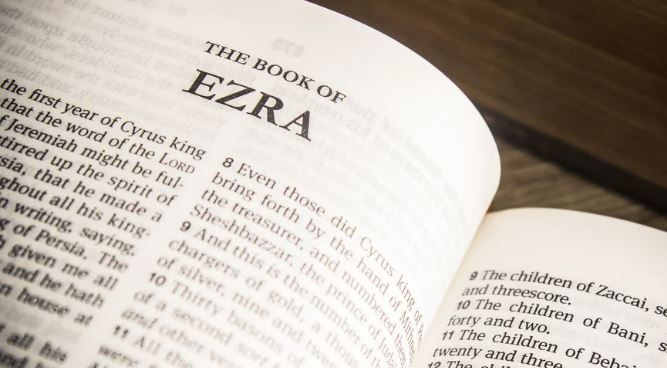Book of Haggai Summary: Rebuilding the House of the Lord
- Bible Believing Christian

- Aug 21, 2025
- 4 min read

Book of Haggai Summary: Rebuilding the House of the Lord
Haggai is one of the shortest prophets, but his message is laser-focused: rebuild the temple of the Lord. Preaching in the years after the Babylonian exile, Haggai called the returned exiles to put God’s house before their own. His words stirred a discouraged people back into action and carried promises of God’s presence and future glory.
For beginners: Haggai is about keeping God first, finding encouragement in His presence, and looking forward to the greater glory of Christ.
Author, Date, and Setting
Haggai ministered in 520 BC, during the reign of Darius the Great of Persia. The Jewish people had returned from exile (538 BC) and begun to rebuild the temple, but opposition and discouragement caused the work to stall for about 16 years. Haggai and his contemporary Zechariah preached to reignite the people’s zeal for God’s house.
Etymology and Name
Hebrew: חַגַּי (Ḥaggay) — often taken to mean “festal” or “festival.”
Greek (LXX): Ἀγγαῖος (Aggaios).
Thematic tie: His name may reflect joy and celebration, fitting for one who called the people back to the worship of God.
Haggai in the Bible of the Early Church
The early church read Haggai’s words about the glory of the new temple as pointing to Christ. “The future glory of this Temple will be greater than its past glory” (Hag. 2:9, NLT) was seen as fulfilled not in stones but in Christ Himself, the true temple, and in His church. Haggai’s reminder that God’s presence makes the work worthwhile resonated deeply as the church faced its own struggles.
The Prophetic Flow
Chapter 1: A Call to Rebuild
The people had built fine houses for themselves but left the temple in ruins. Haggai rebukes them: “Why are you living in luxurious houses while my house lies in ruins?” (Hag. 1:4, NLT). Their frustration and lack of blessing were tied to misplaced priorities. The people respond and begin the work.
Chapter 2: Encouragement and Future Glory
Haggai encourages the workers who feel their efforts are small compared to Solomon’s temple: “My Spirit remains among you, just as I promised when you came out of Egypt. So do not be afraid.” (Hag. 2:5, NLT). God promises that the glory of this temple will surpass the former, and that peace will dwell there. He also assures Zerubbabel, the governor, of God’s special choice and blessing.
Difficult and Shocking Passages
Haggai bluntly connects the people’s hardships (poor harvests, drought) to their neglect of God’s house (Hag. 1:6–11). For modern readers, this can sound harsh — but it reveals the principle that neglecting God leads to emptiness.
The smallness of the second temple compared to Solomon’s grandeur was deeply discouraging (Hag. 2:3). God’s answer points them beyond appearances to His promised presence and future glory.
How Haggai Points to Christ
The True Temple: Haggai’s promise of greater glory (2:9) finds fulfillment in Christ, who declared Himself greater than the temple (Matt. 12:6).
God With Us: Haggai’s assurance of God’s presence (2:4–5) anticipates Emmanuel, God with us in Christ (Matt. 1:23).
Zerubbabel as a Sign: God calls Zerubbabel His “signet ring” (2:23) — a symbol of authority. Zerubbabel appears in Jesus’ genealogy (Matt. 1:12–13), pointing to Christ as the true heir of David’s line.
The Greater Glory: The church, as Christ’s body and temple of the Spirit (1 Cor. 3:16), fulfills Haggai’s promise of a dwelling filled with God’s glory.
Common Misreadings
Prosperity distortion: Some misuse Haggai 1 to preach wealth and prosperity if you “build God’s house.” The point is not transactional blessing, but reordered priorities — God first.
Over-literalizing the temple promise: The “greater glory” of Haggai 2:9 is not about a third temple of stone but the presence of Christ and His church.
Neglecting context: Haggai must be read in its post-exilic setting, speaking to real discouragement and small beginnings.
Application
Haggai calls us to examine our priorities. Are we investing in our own comfort while neglecting the work of God? True fulfillment is found in putting Him first.
The book also encourages small beginnings. What looked weak and unimpressive — a half-built temple — was the stage for God’s promise of greater glory. In the same way, the church often looks small or fragile, but Christ fills it with His Spirit and glory.
Finally, Haggai assures us of God’s presence: “I am with you, says the Lord” (Hag. 1:13, NLT). That is the greatest encouragement for any work of faith.
Conclusion
Haggai is short, sharp, and deeply practical. He calls God’s people to put Him first, promises His presence in the midst of small beginnings, and points forward to Christ as the true temple of God’s glory.
“The future glory of this Temple will be greater than its past glory… And in this place I will bring peace.” (Hag. 2:9, NLT)


